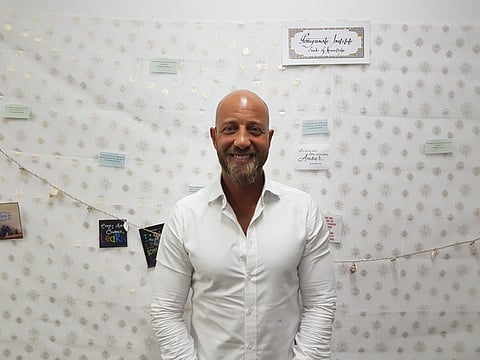A silent challenge: Deaf residents speak out about everyday challenges
UAE’s small but significant community

“Haram!” He almost believed that was his name.
Ever since he was a child, that was the word most people used around Feras Al Moubayed.
It’s an Arabic expression that can take on various meanings, from something that is religiously prohibited to something that is sad or upsetting.
But for Feras, it often signified just one emotion – pity.
Watch: How easy is it to find your way in Dubai, if you are deaf? More on gulfnews.com
Born in a Syrian family living in Kuwait in the 1970s, the 46-year-old vividly remembers playing outdoors as a boy.
“I would play outside my house and if I spoke, the children would look at me funny. Their parents would come out and realise I can’t hear and would say, ‘haram … haram…’,” the fashion designer and British Sign Language teacher told Gulf News.
He still remembers his father’s response to such comments: “He would say, ‘You are haram. My son can’t hear, why is that a problem? All you need to do is talk to him with gestures.’”
While this went a long way in building Feras’s confidence as a child, there weren’t enough institutes that would allow him to receive the best education as a deaf person.
“My father sent me to a school but I would struggle with keeping up with the teacher. So, my father had to pay twice - once for the course and again for an interpreter,” he said.
It was this support that helped him get a degree in fashion designing in the UK. But he isn’t alone in dealing with the challenges life throws at a person who is deaf. His youngest brother Wael was also born deaf and grew up to acquire a degree in physiotherapy. Today, both the brothers are British Sign Language instructors in the UAE and hope to one day run an institute for sign language in the country.
Find out more about their journey and the difficulties deaf people face in doing everyday activities that many take for granted in an in-depth report soon.



